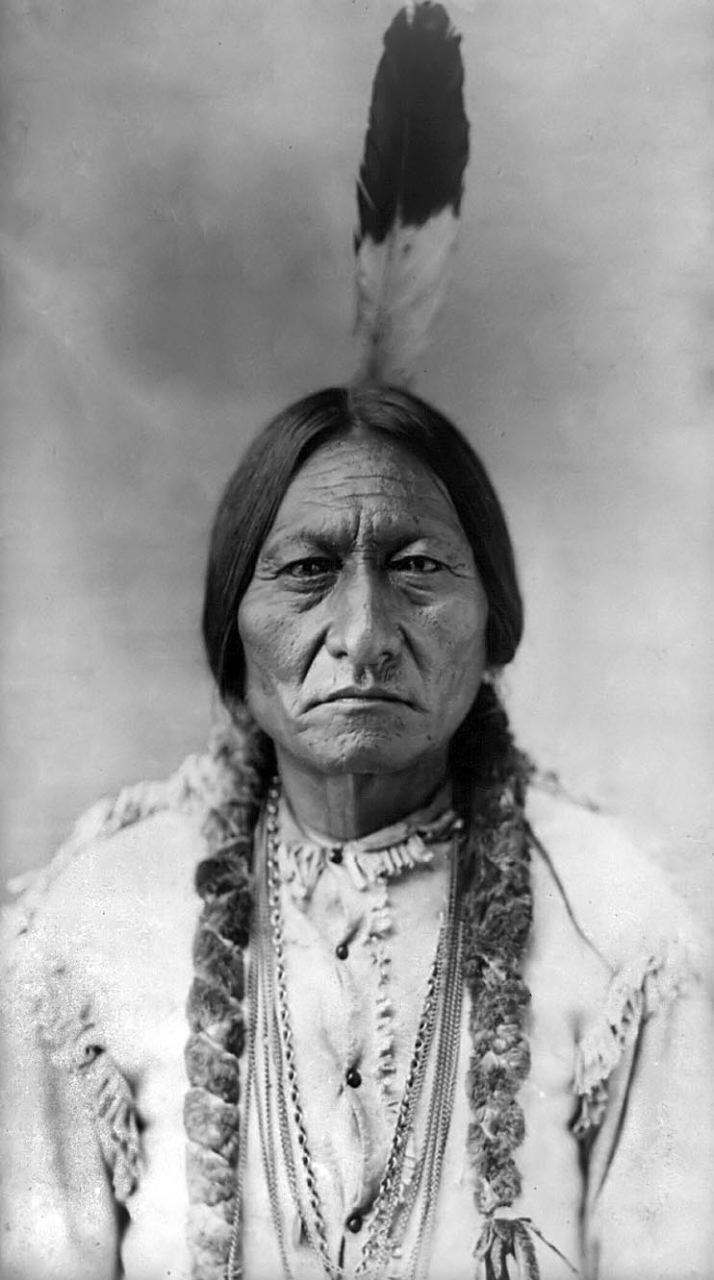
Tell them at Washington if they can find one man among them who speaks the truth, to send him to me, and I will listen.
Perhaps the most famous of the 19th century Indian
leaders, Sitting Bull was the revered spiritual leader of the
Hunkpapa Sioux
He was also a great orator and warrior. "Tell them
at Washington if they have one man who speaks the truth to send him
to me, and I will listen to what he has to say," he said,
challenging the United States to honor just one of its many treaty
obligations. He famously foresaw the demise of Col. Custer
and the Seventh Cavalry during a Sun Dance he held just a week
before the fated battle, on June 25, 1876. Following the
battle, Sitting Bull took his people to Canada, then returned when
conditions became desperate. He and his followers surrendered
at Fort Beauford, on the Missouri River, just a few miles from the
Fort Union trading post. Click here for more on Sitting Bull
Historian
Judith Nies writes that the selection of Sitting Bull to be a
central leader for the many diverse Sioux bands was unprecedented,
but the Sioux believed this was necessary in order to confront the
mounting crisis with the whites. Sitting Bull was a holy man
as much as a war chief, and his people believed his success derived
from the strength of his visions. He himself believed his
powers came from being in harmony with the powers of the universe..
Click here for more on Sitting Bull, the spiritual
leader
Related People
Related Events
Related Flashpoints
Related Places